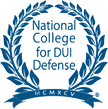
After being arrested for theft in King County, every second that passes is vital to your case. You deserve better than a cookie-cutter approach to your defense. Speak to a Seattle theft lawyer who knows Washington’s justice system and how a resolution will truly impact your life.
Call Emerald City Law Group at 206-973-0407 or online for a free initial consultation.
Theft Charges Can Happen to Anyone
Perhaps you were in the wrong place at the wrong time. Perhaps there was no actual “theft” to speak of, the evidence against you is inconclusive, or the person you “stole” from was fully aware of your actions. We will go to work to find out. If the prosecution has evidence, we will negotiate aggressively for a reduced charge or alternative sentencing to keep you from receiving a theft conviction.
Common Theft Charges and Penalties
Theft is when a person obtains or takes control of another person’s property or services, or the value of that property or services, without permission, to deprive the victim of the property or services. (RCW 9A.56.029) Using deception to take the property of another, or taking possession of mistakenly delivered property, will also count as theft.
Our Seattle theft defense attorney will be able to give you a better picture of what you are facing based on your unique circumstances, but here are the basics of theft in Washington:
- Theft in the first degree. Occurs when the “stolen” property in question is worth over $5,000; is commercial or private metal or nonferrous metal property that exceeds $5,000 in value; or is a search-and-rescue dog taken while on duty. Theft in the first degree is a class B felony, which is punishable by a maximum state prison sentence of 10 years, a fine of $20,000, or both.
- Theft in the second degree. Occurs when the “stolen” property is worth over $750 but less than $5,000; is a public record, writing, or instrument in the keeping of a public servant; is commercial or private metal or nonferrous metal property that exceeds $750 but not $5,000 in value; or is an access device. Theft in the second degree is a class C felony, which is punishable by a maximum state prison sentence of five years, a fine of $10,000, or both.
- Theft in the third degree. Occurs when the “stolen” property is worth less than $750; or the property includes 10 or more merchandise pallets, beverage crates, or a combination of the two. Theft in the third degree is a gross misdemeanor, punishable by a maximum county jail sentence of 364 days, a fine of $5,000, or both.
The theft of a motor vehicle or firearm is always charged as a class B felony, no matter the value of the item. It is also possible to commit theft of telecommunication services (a class C felony) and theft of subscription television services (a gross misdemeanor)!
Aggravating circumstances can increase nearly any criminal penalty, no matter the type of theft. For example, if someone slips an item in their bag at a retail store and exits through an emergency door, it is a “special circumstance” that bumps the shoplifting charge to a class B or C felony. Child endangerment during the commission of the alleged crime can also lead to harsher sentencing and make you ineligible for alternatives to incarceration.
Unexpected Consequences of a Conviction
While the criminal penalties of a theft conviction in King County are considerable, there are also collateral consequences that can ripple out, starting with the damage to your reputation. You may suffer:
- Rejection for housing.
- Rejection for employment.
- Rejection for scholarships or federal financial aid.
- Loss of professional licenses.
- Loss of child custody or visitation.
- Deportation.
- Civil lawsuits filed by the “victim.”
- Inability to vote.
- Inability to own firearms.
- A permanent criminal record, leading to harsher penalties if you are arrested and convicted again.
Many Seattle men and women face discrimination and limited opportunities after a theft conviction. But that doesn’t have to be your fate.
Are There Alternatives to Incarceration?
Certainly; and your best chance of receiving them is to have a strong theft defense lawyer on your side. With Emerald City Law Group’s help, you may be eligible for:
- Probation
- Electronic home monitoring
- Community service
- A drug treatment program
- Family and Offender Sentencing Alternative (FOSA)
FOSA allows judges to waive a prison sentence for eligible persons and impose 12 months of community supervision, along with conditions for treatment and programming. If you have an open child welfare case or any history of neglect or abuse, it will be more difficult to qualify for FOSA.
Speak to a Seattle Defense Lawyer As Soon As Possible
Emerald City Law Group is located in the heart of Seattle, and we know the local courtrooms, judges, and prosecutors. Our criminal defense attorneys in King County believe that a personalized and proactive approach is the best way to keep a conviction off your permanent record. We are available 24 hours a day, seven days a week to answer your questions.
After any theft arrest, the sooner you have legal help, the better your chances of moving past the incident unscathed, so do not hesitate to contact us right away at 206-973-0407 for a free initial consultation.
View All Blogs





